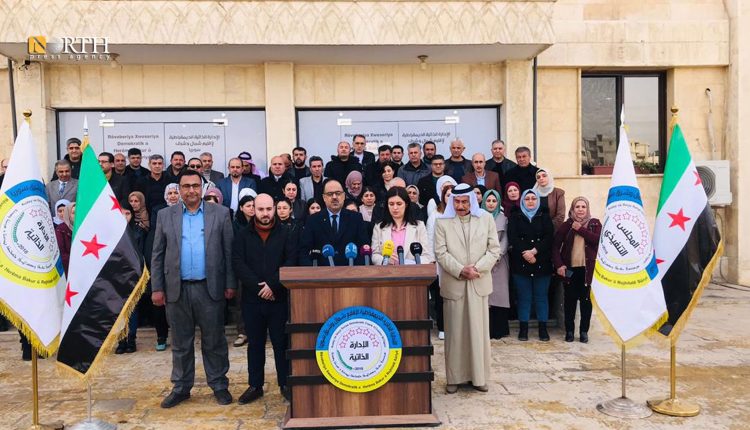Kurdish Region Rejects Syria’s New “Constitutional Declaration,” Calling It a Step Backward
By Kardo Roj
QAMISHLI, Syria (North Press) – The Autonomous Administration of North and East Syria (AANES) strongly rejected the newly issued “Constitutional Declaration” announced in Damascus on Thursday, criticizing it as an exclusionary framework that fails to represent Syria’s diverse communities.
In an official statement, AANES denounced the declaration as a continuation of the centralized and authoritarian approach that Syrians rose against. “This measure contradicts the reality of Syria’s diversity and is a direct distortion of the country’s national and societal identity,” the statement read.
The announcement in Damascus comes months after the fall of the Baathist regime, a moment that was celebrated by many Syrians who had long opposed its repressive policies. However, the new constitutional framework, which bears similarities to previous governance models, has sparked criticism for lacking inclusivity.
AANES officials argue that the declaration excludes key components of Syria’s national fabric, including Kurds, Arabs, Assyrians, and other ethnic and religious groups. “This so-called constitutional framework does not carry the voice of Syria’s people or its diverse communities,” the statement emphasized.
The administration warned that the declaration represents a “continuation of an individualistic mindset,” reminiscent of past centralized rule. “The Syrian people revolted against such practices, and any return to this outdated approach will only deepen the wounds of the nation,” it added.
AANES reiterated its position that any legitimate constitutional process must involve all components of Syrian society through genuine national participation. “A true constitution is one that is collectively drafted and agreed upon by all communities. It must serve as the foundation for a sustainable democratic future in Syria,” the statement asserted.
The rejection of the declaration by AANES highlights ongoing tensions over Syria’s political future. While Damascus seeks to establish a new constitutional framework, critics argue that without true representation, such measures risk perpetuating past grievances.
Political analysts suggest that a failure to recognize Syria’s diversity could lead to renewed divisions, jeopardizing efforts to build a stable and inclusive post-conflict state. AANES officials have warned that any attempt to impose a top-down governance model without national consensus could reignite tensions across Syria.
“We hope that narrow-minded approaches will not push Syria back to square one,” the statement concluded, warning that a failure to address these concerns could reopen Syria’s wounds and prolong its political crisis.
As Syria navigates this transitional phase, the call for a truly representative and democratic constitutional process remains a critical demand from multiple actors in the country’s evolving political landscape.

